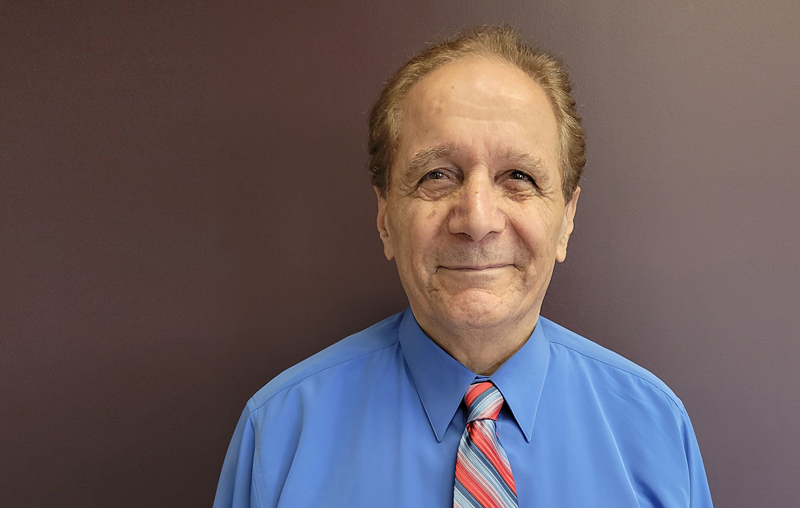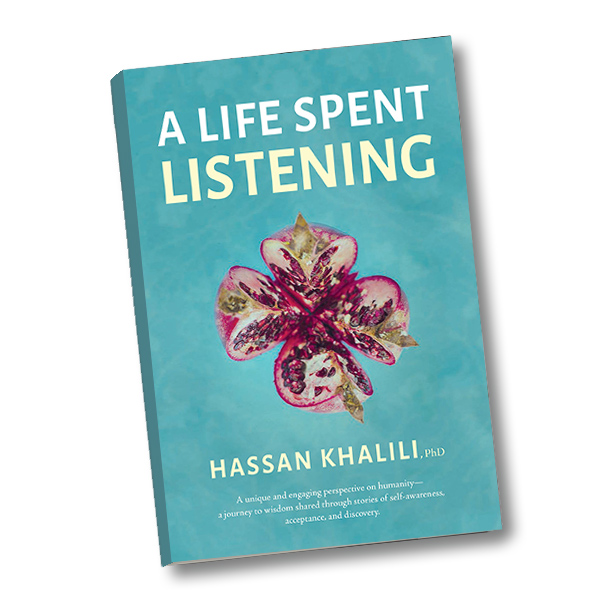Account Login
Don't have an account? Create One

When it comes to your work, it’s not enough to think about what you’d like to do. While it’s good to have career goals and ambitions, psychologist Dr. Hassan Khalili said there are a couple of other things to seriously consider if you really want an overall enjoyable life.
Not everyone is suited to be a CEO, a designer, a manager, a frontline worker… take your pick. It’s the same with professions. People terrible at math are less likely to become accountants. Astronauts are not likely to be quick to anger or anxious. At least, they are less likely to become successful, happy, well-adjusted astronauts, versus people who are less anxious and have a pre-existing tendency to stay calm under pressure.
Are you a well-organized person? Do you prefer a roadmap or finding your own path? Do you like attending to details, or appreciate being able to think more broadly? Do you learn fast on the job, or do you maybe retain information well once it’s learned, even if it takes longer to learn? Are you comfortable working independently? Patient? Do you mind picking up a phone and cold-calling someone as needed? Do you like working in a team or prefer to work alone? There’s a lot you can think about.
“The person needs to have the ability, for whatever they do. Have the personality for it, but also the interest. A lot of people have interest, but they don’t have the other two (ability and personality),” Khalili said, speaking recently with Atlantic Business Magazine in the wake of publishing his new book earlier this year, A Life Spent Listening (Breakwater Books).
He generally advised thinking about what your personality is suited for, core capabilities and your aptitude in different areas, before spending a great deal of time and money on a particular professional direction only on the basis it is something that’s interesting to you.
“In North America we don’t teach these two (ability and personality). It’s ‘Do anything you want to do.’ It’s what you want to do. Whatever you’re interested in doing. But interest is not enough,” he said.

Partnering well
If going into business, it might just be a case of finding a business partner who is the right complement in terms of ability and personality, he said. Always consider how things will practically work. If you’re not good at networking, for example, and you’re venturing into an area where those skills are essential at the jump, how does that get addressed?
If you think more about it early on, you can avoid obvious frustrations down the line, he suggested.
Khalili said business partners or key hires deserve some thought. He said it’s not unlike when you’re looking for a life partner. First and foremost, he suggested, look for people who are emotionally present (are attentive when you talk about plans and engage in the conversation) and when people are not emotionally reactive (snapping or jumping too quickly on ideas, making you feel small). Look for this, as opposed to fixating on the CV.
In his book, he offered further recommendations on life partners, emotional health, resilience, trust, seeking contentment and more. The whole of the book offers advice in a digestible way — where Khalili knows the realities and not just the theory well enough to write for a general audience, instead of only for fellow psychotherapists. The book is written in chapters of just a few pages each and are designed so it can all be consumed bit by bit, even on breaks of just a few minutes at a time. Throughout, there are examples inspired by his clinical experience.
Life lessons
Where the book really finds its feet is in his personal voice and sharing of personal experiences. The cover of A Life Spent Listening features a pomegranate. It is a nod to his roots in Iran, his childhood in Qom (South of Tehran) and family fruit orchards, including some not far away in the small village of Aveh. Early in, through idyllic images, he recalls playing around family pomegranate trees. It could all be chocked up to passing sentimentalism, until you keep reading.
From his childhood, there is study for his degree in counselling children earned at the Teacher Training University in Iran, further study in the United States. He was working on an MBA when the Iranian Revolution took hold in the late 1970s. He didn’t return to Iran and instead chose to continue with his professional development in psychology in North America, including study in niche areas like industrial organizational psychology, eventually making the move to Canada. He was invited to Newfoundland and Labrador for a job interview in 1985.
After first moving to St. John’s, he writes, he lived near Bowring Park for a time and walked there (as he had amongst the pomegranate trees of his childhood). He describes meeting other people who enjoyed walking and hiking, starting a club of sorts, eventually making trips to Machu Picchu and, later, Mount Kilimanjaro.
“I am no Forrest Gump, but some studies suggest our earliest ancestors would travel as many as twenty-five kilometres a day hunting and gathering food. Maybe that is why keeping moving, specifically in my case walking, seems to come so naturally,” he writes.
Moving through his book, Khalili drills into readers the very basic idea of appreciating the world around you, even as he walks through tips for tackling some of the common issues he’s come across professionally (currently at Khalili & Associates Inc. in St. John’s). Notably, no individuals are identified in the book and case examples are generalized, except for Khalili himself.
In his own case, he said, psychology wasn’t something he always dreamed about as his profession. And it wasn’t always the obvious choice for him. However, he discovered over the years he could talk to people and found they tended to open up to him in conversation. His personality served him well professionally and he found satisfaction, and now he is passing on a few lessons in his writing and wherever else he can.
In Book Report, Atlantic Business Magazine is highlighting non-fiction focused on Atlantic Canada and Atlantic Canadians, and from Atlantic Canadian publishers. These short pieces will offer details from upcoming business biographies, Q&As on new releases and in some cases fresh commentary from non-fiction authors on the subjects of their published works.
Comment policy
Comments are moderated to ensure thoughtful and respectful conversations. First and last names will appear with each submission; anonymous comments and pseudonyms will not be permitted.
By submitting a comment, you accept that Atlantic Business Magazine has the right to reproduce and publish that comment in whole or in part, in any manner it chooses. Publication of a comment does not constitute endorsement of that comment. We reserve the right to close comments at any time.
Cancel